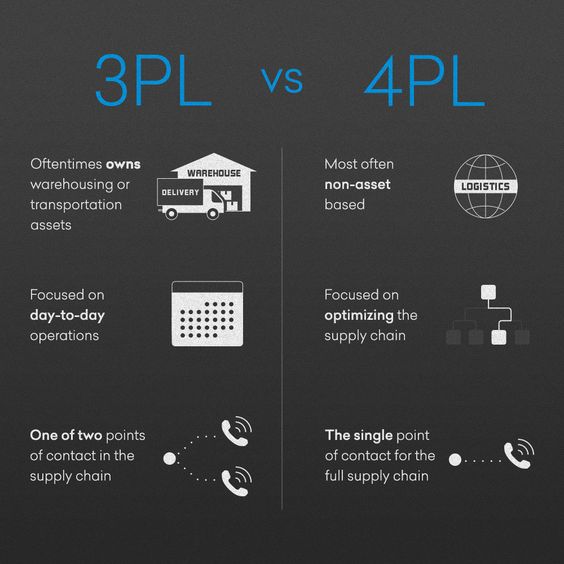In today’s complex marketplace, speed, efficiency, and cost control are more than just a competitive advantage; they are survival traits. This is where third-party logistics (3PL) comes into play, offering solutions that can optimize various facets of the supply chain. But what exactly is 3PL, and how can it benefit businesses across the board? Let’s delve into the world of logistics and uncover the valuable benefits and industry insights.
Introduction
Third-party logistics, commonly referred to as 3PL, is a service that allows companies to outsource elements of their distribution, warehousing, and fulfillment services. A 3PL provider can become a valuable partner in managing logistics operations efficiently, allowing businesses to focus on other areas of their business.
Benefits of 3PL
The allure of 3PL services lies in the multitude of benefits they bring, including significant cost savings and access to vast networks and expertise. Here’s how businesses can reap these advantages:
Cost Savings
One of the primary benefits of using a 3PL provider is the potential for cost reduction. 3PLs offer economies of scale, which can reduce transportation rates, lower warehouse overhead costs, and save on investments necessary for technology systems. By outsourcing logistics, companies can also avoid the costs of maintaining and managing their own transportation infrastructure.
Access to Expertise
Partnering with a 3PL provider grants businesses access to logistics experts who are well-versed in the latest technology, regulations, and processes. This industry knowledge can be leveraged to improve supply chain efficiency and stay ahead of ever-changing market demands. 3PL providers are experts in what they do and bring a wealth of knowledge about industry best practices and the latest developments in supply chain management. This expertise ensures compliance with regulatory requirements and provides improved risk management strategies.
Focus on Core Competencies
By outsourcing logistics operations, companies can free up valuable time and resources that can then be allocated towards their core competencies. This
Scalability and Flexibility
With the help of a 3PL, companies can easily scale operations up or down based on current business needs and market demands. This elasticity ensures that businesses can comfortably manage peak seasons or unexpected market shifts without incurring extra costs.
Time and Efficiency
By leveraging the capabilities of a specialized 3PL provider, companies can save significant time and increase efficiency within their supply chains. This allows them to deliver products faster and more reliably, thus improving customer satisfaction. With 3PLs, businesses can also minimize handling and transportation times, reducing overall lead times.
Network of Resources
A robust network is a backbone of effective logistics. 3PLs usually have an extensive network of resources that smaller businesses might not have access to on their own. This broad network can lead to lower overhead and faster service times. 3PLs can also provide access to different modes of transportation, allowing companies to choose the most cost-effective and efficient options.
Insights into the 3PL Industry
The 3PL industry is dynamic and rapidly evolving, largely driven by technology and innovation. As e-commerce continues to grow, so does the demand for knowledgeable logistics providers. Advanced technologies like AI, machine learning, and data analytics are being embraced to optimize logistics and forecasting. The rise in environmental consciousness also sees 3PL providers investing in sustainable and eco-friendly practices, which is not just good for the planet, but also for company reputations.
Comparison of 3PL and 4PL
Key Differences and Considerations
While a 3PL provider manages logistics operations, a fourth-party logistics (4PL) provider goes a step further by managing the entire supply chain. The key distinction is that a 4PL acts as a single point of contact between the client and multiple supply chain partners, providing a more holistic approach to logistics management. 4PLs are responsible for designing, building, and managing the supply chain on behalf of their clients. However, businesses considering 4PL services should conduct thorough research to ensure the provider can meet their unique needs and provide transparent communication in managing various supply chain partners. 4PLs may also come at a higher cost than 3PLs, making it essential for companies to weigh the benefits and costs carefully.
Which One is Right for You?
Choosing between a 3PL or 4PL provider depends on various factors such as business size, complexity of operations, and specific needs. A smaller company with simpler logistics requirements may benefit from a 3PL, while larger companies with more complex supply chains may require a 4PL’s end-to-end solutions. Ultimately, the decision should be based on which provider can deliver the most value and help achieve business goals.
Case Study: 3PL vs 4PL
Example Highlighting the Advantages and Disadvantages of Each
Imagine a fast-growing retailer who partners with a 3PL provider to handle their inventory management and delivery. The cost savings and operational improvements drive growth. Later they transition to a 4PL provider who oversees their entire supply chain. While this strategic move offers a high level of control and further optimizes operations, it comes with increased complexity and may require more robust management involvement. The key takeaway is that both 3PL and 4PL providers offer unique benefits, and the choice ultimately depends on a company’s specific needs.
Conclusion
Understanding what 3PL is and the benefits it can offer is essential for any business looking to streamline its supply chain operations and stay competitive in today’s fast-moving market. The choice between 3PL and 4PL services ultimately depends on the specific needs and capabilities of each business. By partnering with a reputable and experienced 3PL provider, companies can unlock access to expertise, focus on core competencies, increase scalability and flexibility, save time and improve efficiency, and leverage a vast network of resources. With the right 3PL partner, businesses can achieve growth and success in an increasingly complex global market.
Choosing the right logistics partner could mean the difference between merely surviving and truly thriving in the digital age. By leveraging the expertise, network, and efficiencies that 3PL provides, businesses can shore up their operations and set themselves up for success now and in the future.

